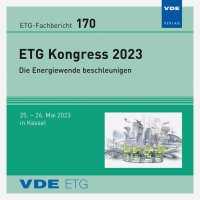AI-based heat demand forecasting in industrial buildings for flexible operation of combined heat and power plants
Konferenz: ETG Kongress 2023 - ETG-Fachtagung
25.05.2023-26.05.2023 in Kassel, Germany
Tagungsband: ETG-Fb. 170: ETG Kongress 2023
Seiten: 6Sprache: EnglischTyp: PDF
Autoren:
Quakernack, Lars; Hoevelmann, Julian; Kroeger, Kersten; Haubrock, Jens (University of Applied Sciences Bielefeld, Germany)
Inhalt:
In the process of the expansion of weather-dependent distributed renewable energy systems (DER) with simultaneous growth of electric vehicles (EVs) as new types of consumers, problems in grid stability may arise. This volatile generation and high power of EVs will have to be balanced by the use of weather-independent generators. For this reason, combined heat and power (CHP) plants can make their contribution through their potential controllable power generation. In this way, CHPs can provide balancing and control power in a CO2-minimised electricity grid. Besides the primary characteristic of CHPs, demand-based heat generation, the heat demand of e.g. industrial buildings must be known. For this purpose, this paper develops a heat demand forecast for an industrial company based on historical heat consumption data and the corresponding weather data. The mean absolute error (MAE) is 14.2 kW and 17.15 kW in the winter and transition months. In summer this increases to 26.39 kW. Also the deviation of the total energy demand differs from 3.20% in the winter up to 4.45% in the transition month. Based on the forecast, a schedule for the CHP unit is calculated, which makes optimal use of both the service life of the CHP unit and a heat storage tank. This procedure allows the level of flexibility of the CHP unit to be measured, and thus, the benefits of the CHP unit in electricity-led operation mode for the stabilisation of electricity grids to be presented.


